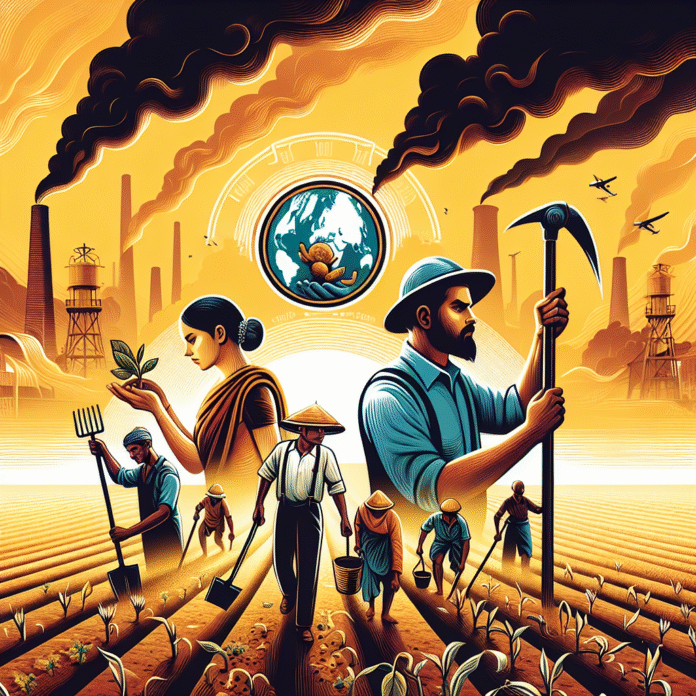Immediate Action Required for Agricultural Resilience
Immediate Climate Action Required to Mitigate Agricultural Vulnerabilities – AATF
The African Agricultural Technology Foundation (AATF) has issued a critical call for urgent climate action to combat the vulnerabilities faced by the agricultural sector. Climate change poses significant threats to food security, livelihoods, and the overall stability of agricultural systems, particularly in developing regions.
As extreme weather events become more frequent and unpredictable, farmers are increasingly facing challenges such as droughts, floods, and shifting pest populations. These conditions not only diminish crop yields but also exacerbate existing socio-economic inequalities, putting smallholder farmers at greater risk.
Understanding the Impact of Climate Change on Agriculture
Climate change affects agriculture in various ways, including altering rainfall patterns, increasing temperatures, and promoting the spread of diseases and pests. These changes can lead to reduced agricultural productivity and threaten food security across nations. In many parts of Africa, where agriculture is a primary livelihood source, the repercussions are particularly severe.
Strategies for Climate Resilience in Agriculture
To effectively address these challenges, the AATF emphasizes the need for innovative agricultural practices and technologies that enhance resilience. Some key strategies include:
- Climate-Smart Agriculture: Implementing practices that improve productivity while reducing greenhouse gas emissions and enhancing resilience to climate change.
- Research and Development: Investing in research to develop crop varieties that are resistant to extreme weather conditions and pests.
- Water Management Techniques: Employing efficient irrigation systems and rainwater harvesting to optimize water use.
- Education and Training: Providing farmers with knowledge and tools to adapt to changing climatic conditions and implement sustainable practices.
The Role of Policy and Community Engagement
Effective climate action also requires supportive policies at both national and international levels. Governments should prioritize investment in sustainable agriculture and facilitate access to resources for smallholder farmers. Community engagement is vital, as local knowledge and practices can greatly enhance adaptation strategies.
Conclusion
As the impacts of climate change continue to escalate, the agricultural sector must be a focal point for urgent action. The AATF’s call to action underlines the necessity for collaborative efforts among governments, NGOs, and the private sector to safeguard food security and enhance the resilience of farming communities. Together, we can create a sustainable future for agriculture in the face of climate change.


